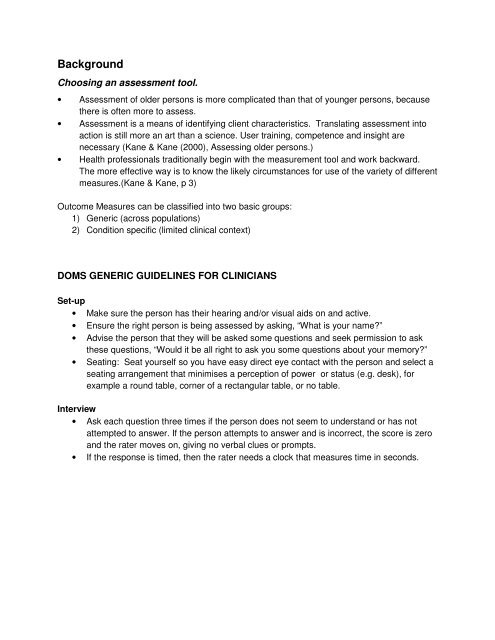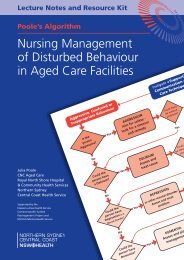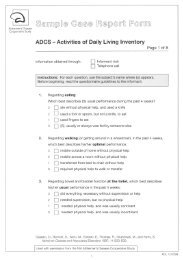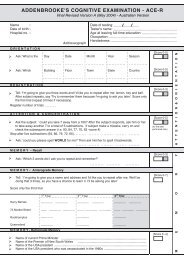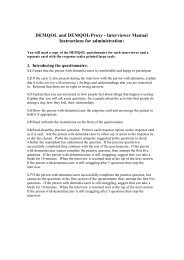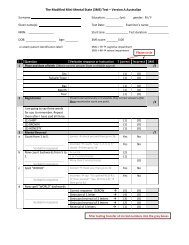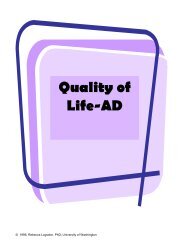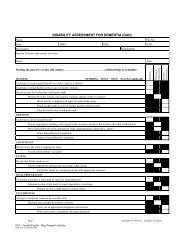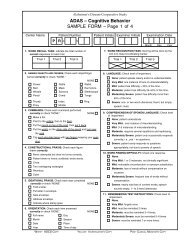Generic Guidelines for Dementia Assessment - Dementia Outcomes ...
Generic Guidelines for Dementia Assessment - Dementia Outcomes ...
Generic Guidelines for Dementia Assessment - Dementia Outcomes ...
You also want an ePaper? Increase the reach of your titles
YUMPU automatically turns print PDFs into web optimized ePapers that Google loves.
Background<br />
Choosing an assessment tool.<br />
• <strong>Assessment</strong> of older persons is more complicated than that of younger persons, because<br />
there is often more to assess.<br />
• <strong>Assessment</strong> is a means of identifying client characteristics. Translating assessment into<br />
action is still more an art than a science. User training, competence and insight are<br />
necessary (Kane & Kane (2000), Assessing older persons.)<br />
• Health professionals traditionally begin with the measurement tool and work backward.<br />
The more effective way is to know the likely circumstances <strong>for</strong> use of the variety of different<br />
measures.(Kane & Kane, p 3)<br />
Outcome Measures can be classified into two basic groups:<br />
1) <strong>Generic</strong> (across populations)<br />
2) Condition specific (limited clinical context)<br />
DOMS GENERIC GUIDELINES FOR CLINICIANS<br />
Set-up<br />
• Make sure the person has their hearing and/or visual aids on and active.<br />
• Ensure the right person is being assessed by asking, “What is your name?”<br />
• Advise the person that they will be asked some questions and seek permission to ask<br />
these questions, “Would it be all right to ask you some questions about your memory?”<br />
• Seating: Seat yourself so you have easy direct eye contact with the person and select a<br />
seating arrangement that minimises a perception of power or status (e.g. desk), <strong>for</strong><br />
example a round table, corner of a rectangular table, or no table.<br />
Interview<br />
• Ask each question three times if the person does not seem to understand or has not<br />
attempted to answer. If the person attempts to answer and is incorrect, the score is zero<br />
and the rater moves on, giving no verbal clues or prompts.<br />
• If the response is timed, then the rater needs a clock that measures time in seconds.


